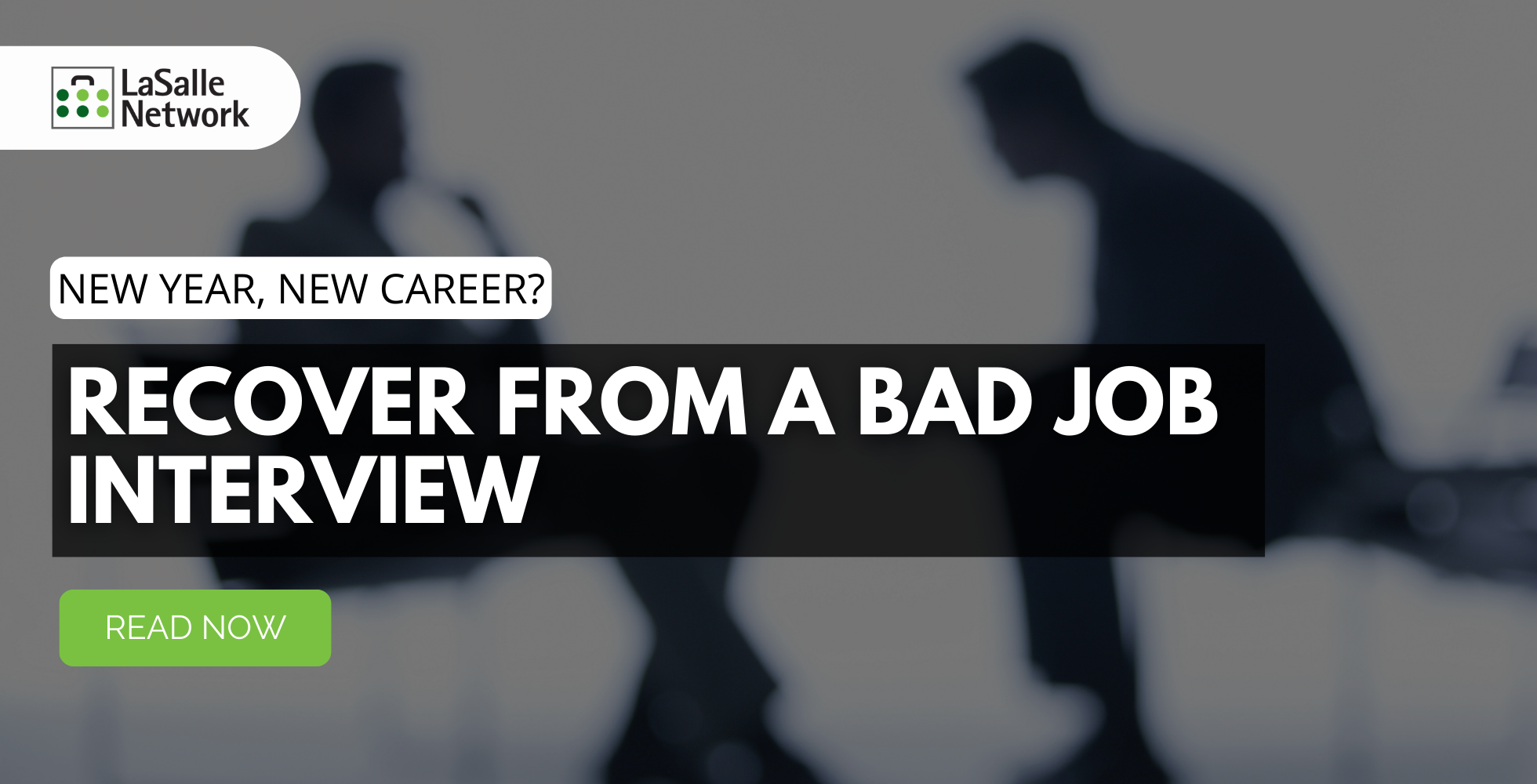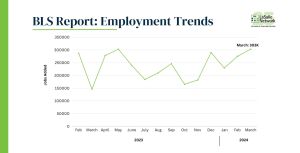LaSalle Network Vice President, Jessica Schaeffer, joined ABC 7 Chicago to share how to recover after making a mistake in a job interview. To watch, click here.
It’s a new year, is it time for a new career? With a new year comes many professionals making resolutions to climb the corporate ladder or find a new role. While working to find a job, nothing tugs at the back of somebody’s mind like the regret of a botched interview, or the anxiety of messing up in an upcoming one. Not nailing the perfect answer or forgetting key details is a collective anxiety of many modern jobseekers.
Despite an interview going south, not all is lost. There are a few key ways to grab hold of the interview and swing it back around.
First, Take a Breath
Interviews can be intimidating and nerve-wracking, and thankfully, interviewers know this, too. If it feels like answers are getting too wordy, or the responses feel remarkably similar because nerves kicked in and any recollection of a former roles’ successes comes to a blank, it is okay to acknowledge the nerves and ask the interviewer to start an answer over. Take a second to breathe, gather your thoughts and refocus the interview. It’s a strong step forward in repairing a mangled answer and reconnecting with the interviewer.
Ask Clarifying Questions
Not all botched responses are a result of nerves. Oftentimes it’s because the question wasn’t fully understood. Don’t be afraid to break the rhythm of the interview and ask those clarifying questions. Refocusing questions, like asking for clarification or for the interviewer to elaborate on a topic, can give more focus to the interview, and allow for more specific and unique answers. If anything, asking for clarification during the interview shows engagement, and when asked in a follow-up email shows reflection and continued interest in the role.
Restate Answers
Remember that an interview is a conversation, and if something that was left out from a previous response pops up further into the interview, there is no rule that says it can’t be shared because the interviewer moved on from that question. Allowing space to be as clear as possible not only helps the interview have greater impact but gives peace of mind that all that could be said was.
Draft a Thank-You Note
After the interview is said and done, drafting a thank-you note and sending it within 24 hours is an effective way to show continued interest in the position. Also use this opportunity to address any additional information that may have been left out of a response. An open and honest thank-you note can push the interview out of the red and into the green.
Ask for a Re-Do
There are so many things that happen day-to-day that can cause distraction during a job interview – a flat tire, a sick baby at home, a recent passing of a loved one, finding out hard news before entering the room, and the list goes on and on. If you truly feel like you could have done a much better job without a major distraction, ask the interviewer for a second chance. Be vulnerable and share what was going on and ask for a re-do. It shows emotional intelligence, and the worst that can happen is they decline the idea.
Ask for Feedback
At this point, if there is nothing left to ask for and nothing more to be done to salvage a junked interview, ask for feedback. Getting information on what went well and what went poorly can change the game for a future job interview.
Job searching? We can help. View our open roles here.







